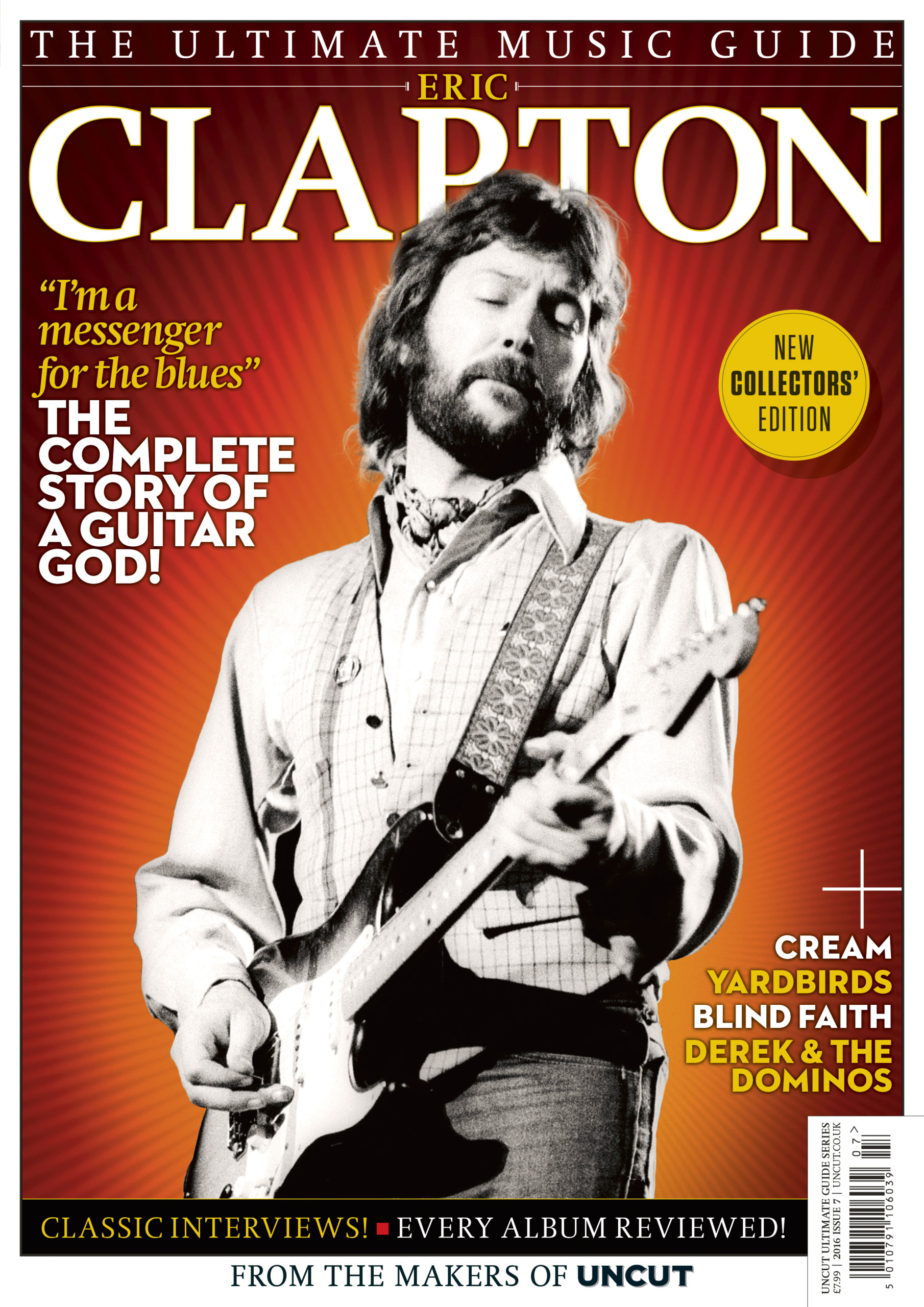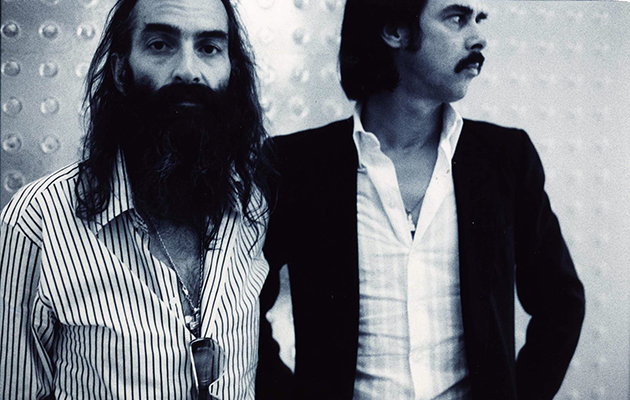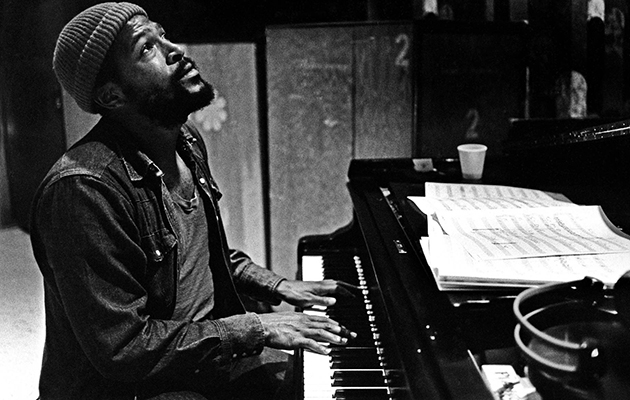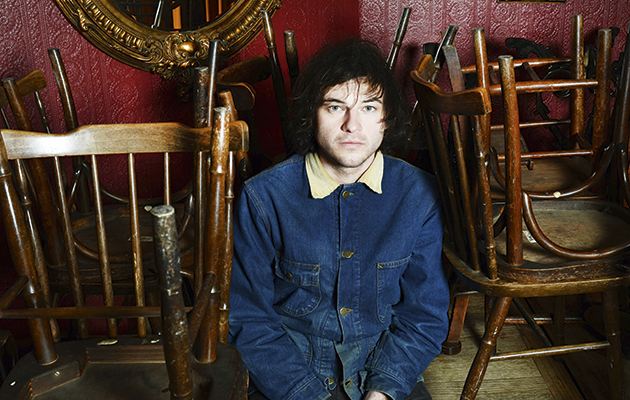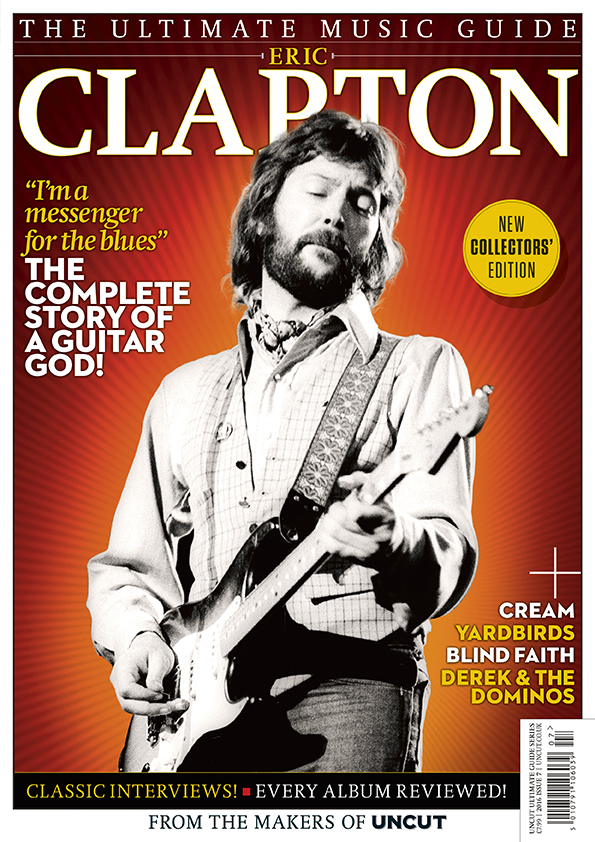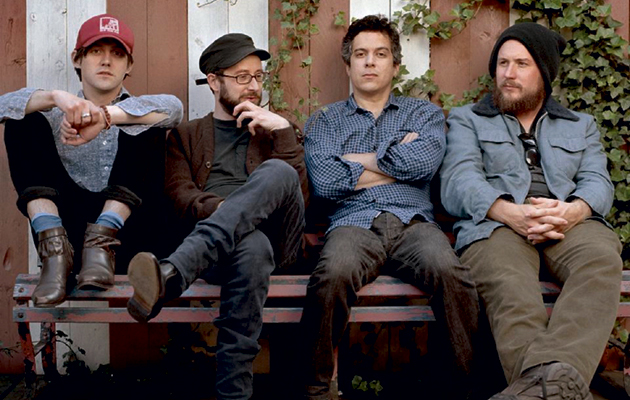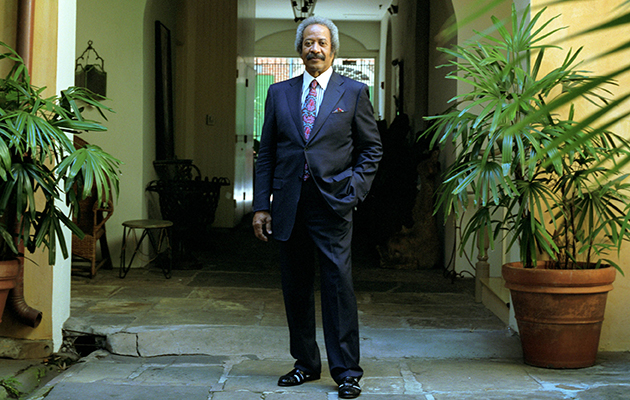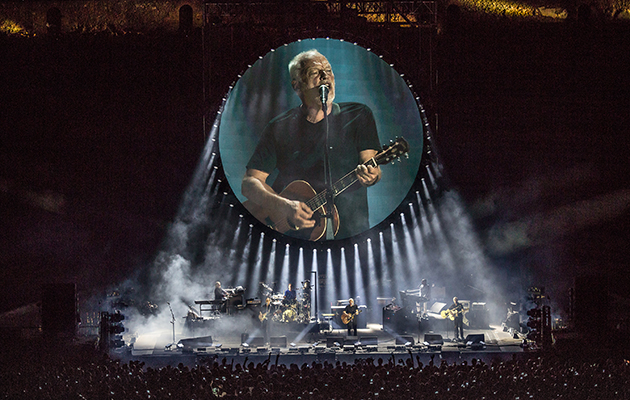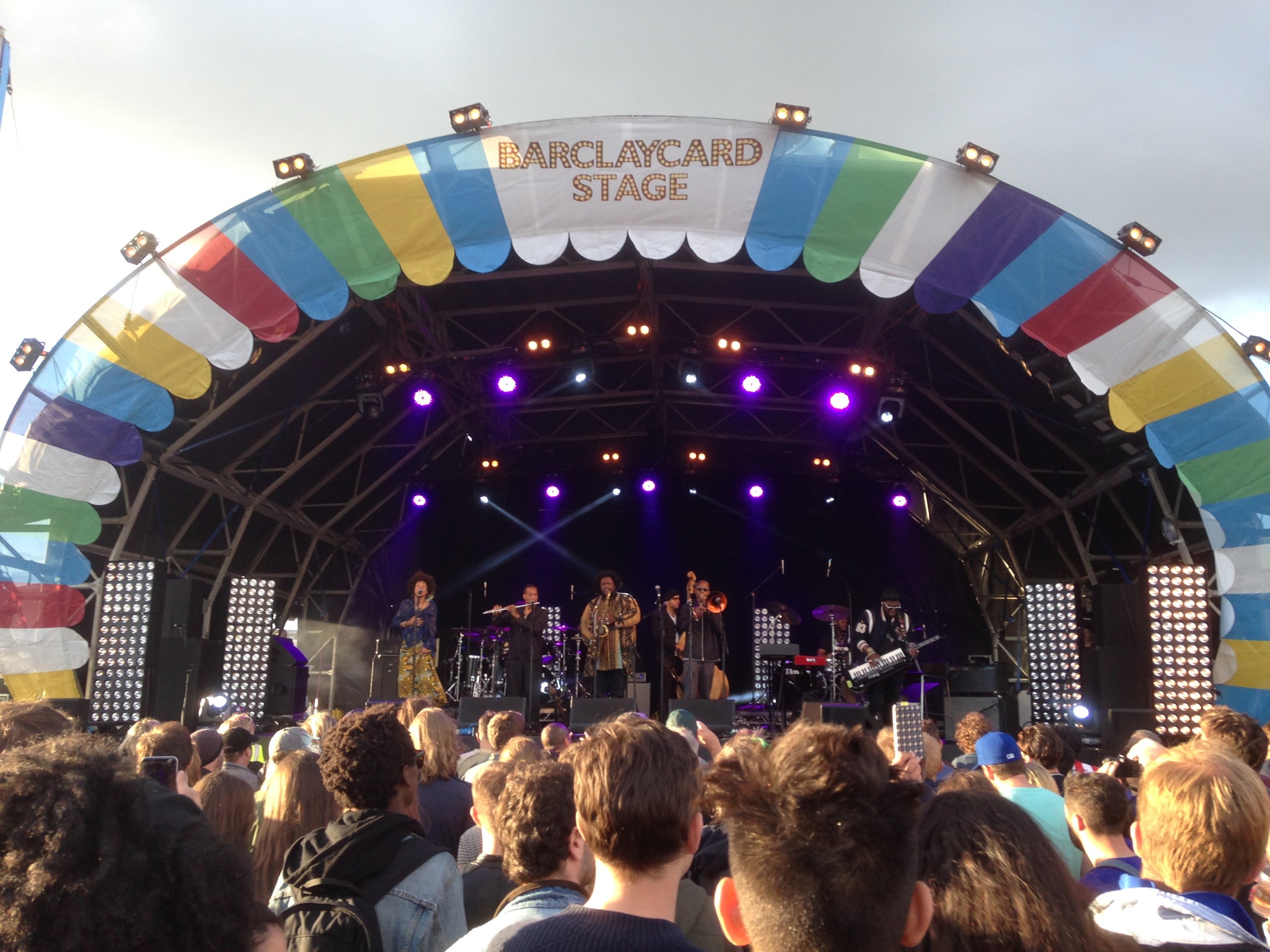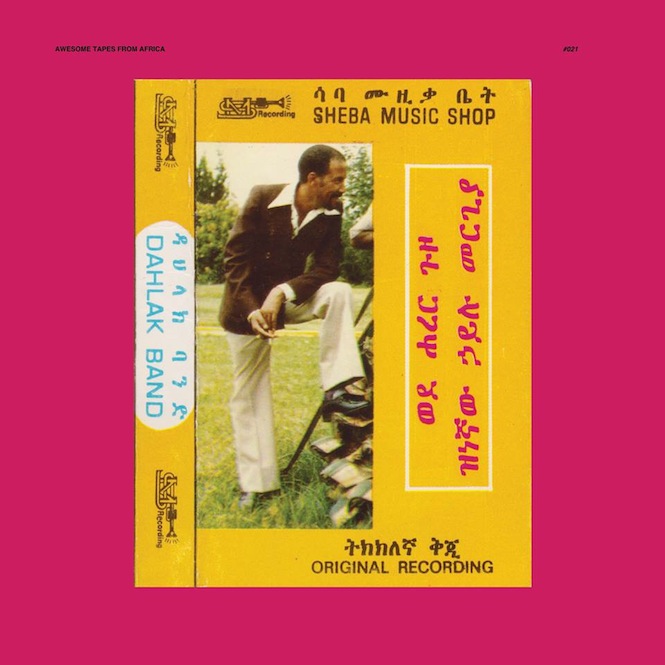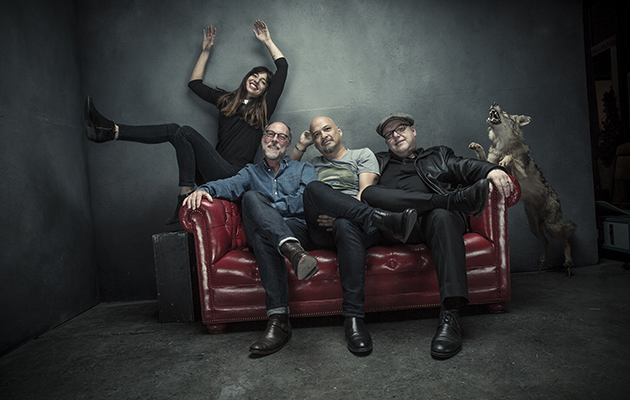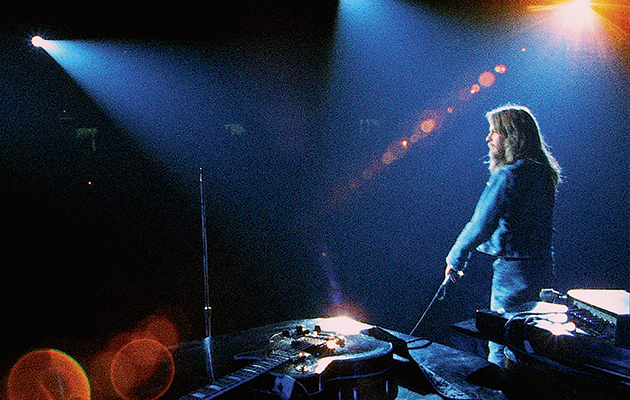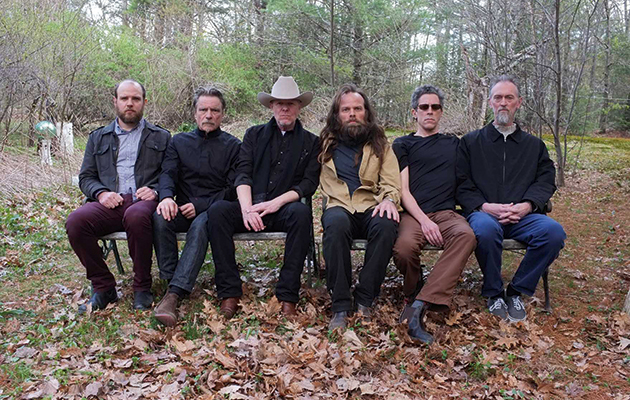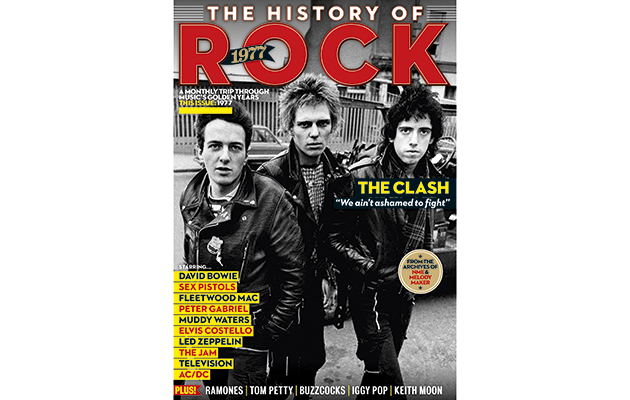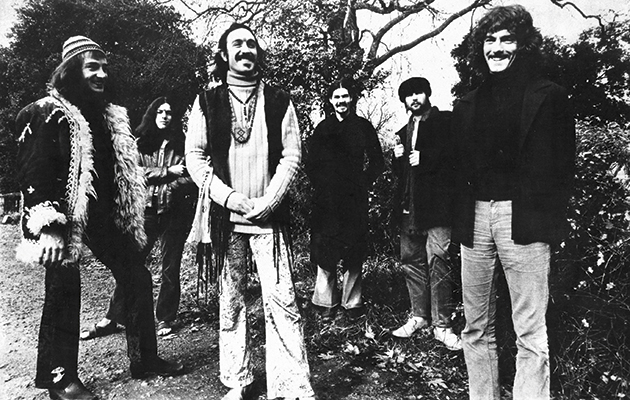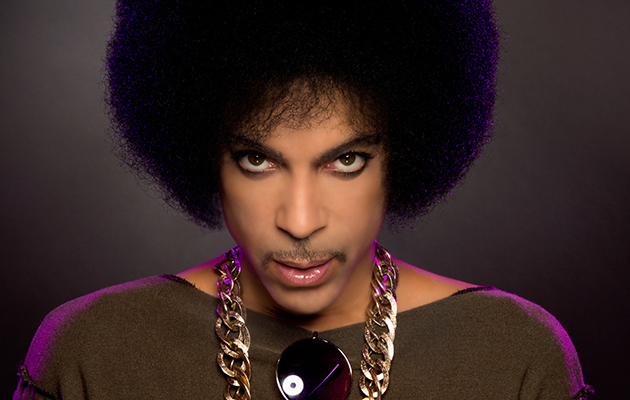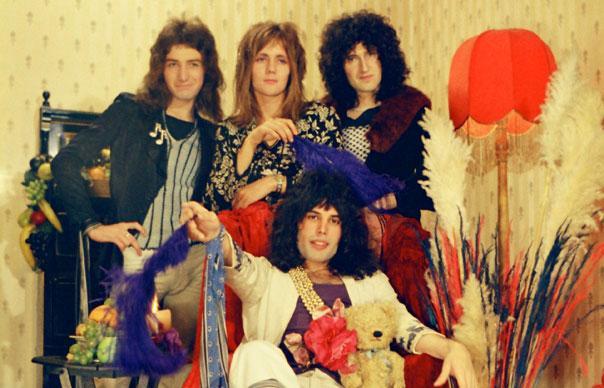Besides O’Rourke, there are a couple of other artists who seem to be echoed in the record. One is Mark Eitzel and American Music Club
Fuck yeah. It’s funny, nobody in America really listens to Mark Eitzel or American Music Club, like nobody. Maybe the occasional guy who was a college radio DJ in the 1990s, but that’s it. But when I come to the UK, people are nuts about the guy. I just fell in love with that guy’s music, especially the solo records, they’re absolutely gorgeous.
The one that this record reminds me of most is 60 Watt Silver Lining.
That’s a gorgeous record, I fucking love that record. He has a kind of conversational approach to music which sounds like a guy at the end of a bar losing his mind at 2 am. It’s painfully personal, even if it’s embarrassing, and I kinda like that approach. I’m not really confessional, I think I just relate to being really fucking embarrassed all the time. I don’t like the word confessional. It’s kinda lame, like what are you confessing? You’re confessing half-truths, and if you embarrass yourself that’s the full-on truth. It’s kind of what I’m going for.
I saw plenty of Eitzel shows in the ’90s, and there was no getting away from the fact that those were confessional shows. I’ve seen him break down in tears and have to go offstage, and throw shit about. They were pretty harrowing shows and they sometimes got really close to voyeurism, it was so personal. He went to some quite difficult places and, as an observer, it became a bit problematic about going to see him fall apart.
God, I hope I don’t fall apart. That’s amazing. It is uncomfortable, at times, to say these things in the music, and people can interpret them however they want. But I’m glad it’s real, and I’m glad it’s from a real place. I’ve had the insane urge to live better, and I think this is all part of it – to just feel something for the music I’m playing rather than it just being a joyous put-on of some sort. I hope I get deeper and deeper into that. I’m glad I’m reaching a point where I can write from my own perspective and I can do better by myself and better by the people that love me; I can stay employed by travelling all over the world and making more fucked up songs.
The only thing I’d say about that is that it maybe devalues the emotional pleasure and the engagement that people have had with your previous records. I don’t think anyone finds anything superficial or quote/unquote ‘non-real’ about the kind of feeling you put into those old songs.
Yeah, I really hope not. I have a feeling some people won’t dig this one, as much as they really enjoyed the laidback, jammy nature of the last ones, but I think this is the best record I’ve ever made.
The more I listen to it, the more it seems a natural progression from the last one. The bottled lightning vibe of the last one seemed to have gone, but actually the deeper you listen to the arrangements and the feel of the record, there’s a definite through line which isn’t immediately apparent.
Yeah absolutely, and my hope is that we can make another record next year and just keep going through this cycle. I’m having the best time of my life right now just writing music and travelling and meeting all sorts of cool people, and you know, occasionally having a beer with these cool people. It’s the greatest joy of my life getting to travel, but at the same time all this travel has brought up so much anxiety in my life. My personal life and my professional life. It’s a crazy business, I don’t think anybody’s made for it, not even me, y’know? You just have to work.
I just don’t want there to be any more anxiety in my life, and I hope with this record, and touring it, that I can get over some of these things. I feel so happy artistically, and the songwriting really helped me a lot, but some things in my life can be heavy and they’re hard to deal with. There’ll be times where I’m walking around a town and I’m like, ‘God dammit, where am I, where am I?’ but then when you get to the gig it always makes it worth it. There’s just 12 other hours in the day where you’re walking around a new town, you don’t have any friends, you’re gone from everybody, but you know once you get onstage that’s gone. That’s the only time I have to, y’know, squeeze a stress ball.
One of the good things about the record is that you’ve written about that experience without resorting to one of those clichéd ‘shit, life on the road is hard’ records.
Oh it’s not. It’s the easiest job in the world but, y’know, people make it really hard. It’s really easy, you’re taking care of me, you’re in a van all day, you get some food, you get free drinks typically, people are so nice. I get to meet great promoters and meet people who really enjoy the music, great friends, but I make it really hard on myself. used to wash dishes for 12 hours a day and work at call centres, all that dumb shit, and that was hard, feeling like you’re a nobody… I don’t know where we are, sorry…
No, it’s good. When we were talking about Eitzel, I was going to say, the other person this record reminds me of sometimes of is Mark Kozelek.
Oh sure, I love Mark Kozelek. We did his stuff in high school as a band.
I love that record, April. I saw him with a band at Park West in Chicago in 2008, and that was one of the best concerts I’ve ever seen to this day. It was like three hours and he’s such a weird kid. I got to meet him last year, actually. The guy who plays keys with me, Ben Boye, he’s in Sun Kil Moon now, which is crazy. I went from adoring this guy and opening up for him, to having a friend in his band, and I couldn’t be any more proud.
Universal Themes, I think that’s honestly the best one. I think it’s better than the Benji record, to be honest. Benji’s obviously a beautiful record, really contemplative, calculative and personal, but this one’s so insane, it’s like he’s losing his mind on record; an actual anxiety-ridden meltdown record. All the songs are ten minutes, There’s kind of a dumbass ambition, if that makes sense, this weird ambition that’s even higher than Benji record. Some of the songs he totally bombs on, with the weird chord structures and weird lyrics. The instrumentation is dumb and there’s a weird feedback part. I think he knew, ‘This song is a bomb, I don’t even like it that much but I’m going to put it on there because you know what, I don’t give a shit.’
There seem to be a lot of allusions to religion on this record, and to a Christian education. Is that important to understand the record and where you come from?
I wasn’t really raised in one faith particularly. My parents dabbled in church, but I’d say it was more for the social aspect, that’s kind of how I saw Christianity as a kid. We weren’t forced to pray or read Bibles or anything. When I was in high school it was funny because I never enjoyed God, I never thought God was particularly real. I don’t have an issue with God, but I think God would have an issue with me. I think if God was real he’d probably think I was a giant dick. So you know, I’m sorry for the God out there, if they’re real, for drinking too much, smoking too much, cursing too much, being selfish.
I played guitar in this mega-church thing because they gave me a little money and there were nice people there, but they kicked me out because I was a rebel, man, I rebelled. I think they caught me drinking beer or something, but it was fine, it wasn’t a big fallout with God or anything. I’ve treaded so lightly in religion that I almost didn’t at all, but I’m glad I did. I dipped one single toe in religion my whole life and I guess it was a big toe, so it comes out on the record.


